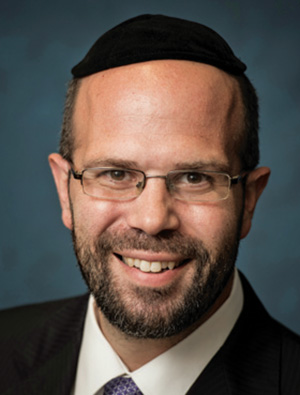
Let’s face it: technology has taken over our world. In countless ways, today’s amenities and style of living seems like the stuff of yesterday’s science fiction. For better or for worse (or both), every sector of our life has been dramatically transformed through technological advancements. Perhaps the most astonishing development over the past several decades is the accelerated pace of technological progress and change. Ever-increasing processing speeds, the continued expansion of digital storage capacity and remarkable improvements in the technology of automation have enabled us to achieve yesterday’s goals in a fraction of the expected time, and realize tomorrow’s dreams (what appears to be) ahead of schedule.
Unfortunately, this new, fast-paced reality leaves us with little or no time to stop, reflect, think and process. There was once a time when we truly appreciated the qualitative value of moments of reflection. Some may have even deemed these moments as essential for healthy living. Breaks in our routine afford us the opportunity to introspect and self-analyze, both thoughtfully and critically. Moments of boredom and disconnect allow us to plan methodically and responsibly. But when life whisks us from one frame in time to the next, without pause or interruption, we are denied these precious opportunities for reflection and growth. In our technologically advanced era, the pauses, breaks and the natural staccato of our schedules have been all but eliminated and supplanted with “new and improved” lightning-speed, high-definition streaming lifestyles.
There is something else as well. Breaks in time have an added value in that they allow us the opportunity to cherish the moments in life that seem extraordinary and appear transcendent. Whether we are experiencing God’s amazing blessing and bounty, or even when faced with a personal setback or loss, such moments are experienced with an enhanced appreciation when we are afforded the opportunity to close our eyes, breathe and take in the moment for all it is.
One of the most stunning moments in our history was kriat Yam Suf, the splitting of the sea. With the Egyptian army in high pursuit and the deep and raging waters ahead, it appeared as if our liberation would be short-lived and our moments of joy and elation would be transformed into tragedy and misfortune. And then suddenly the tide turned (literally) in our favor. The sea opened and embraced our people while simultaneously crushing and defeating our relentless enemies. As we know, this spectacular moment was received by a grateful people—who responded with a united and publicized outpouring of song and praise. The shirat hayam has been memorialized and preserved in our hearts, as we recite these words each and every day.
A closer look at the Torah text reveals a message that is incredibly profound. In the Torah scroll, the shira is written ariach al gabay l’veina; every line is occupied with text as well as empty spaces. This remarkable textual anomaly conveys a message that is essential for our generation. When inspired by the awesomeness of a moment we express ourselves with words of song and thoughts and praise. We employ all of our intellectual and emotional resources in an effort to cull the reservoirs of human vocabulary. We commit ourselves to this task because we hope, at least to some degree, to capture transcendence and then, on occasion, we boldly attempt to preserve it in ink. But this is only half the challenge. When experiencing an awesome and transcendent moment, we must recognize that there is another dimension that can only be captured and preserved through pauses, breaks and, at times, through silence. These empty spaces do not express disruptions in thoughts or emotion. These pauses are not meant to convey confusion nor a lack of awareness. To the contrary, it is precisely when we peer deep into the spaces that lie in between the words that we can succeed in achieving an enhanced level of perception and insight.
Last week, I was blessed to hold my first grandchild. As I stared at her for the first time, my eyes simultaneously locked on the breathtaking view of the Jerusalem sunset, my heart and mind were flooded with emotion. I will not dare an attempt to describe that remarkable moment, as I recognize that from the outset that failure is all but inevitable. But I can say with certainty that this moment was, and continues to be, experienced not through the high-definition and brilliant text of life but rather in the pause and in the silence of the empty spaces that lie in between. I am deeply grateful that although I spend way too much time huffing and puffing on the treadmills of technology, I am still able to access the pause feature in my heart and mind. I am grateful because I am absolutely convinced that there are moments in life that I don’t want to be streamed and shared. And, for whatever it’s worth, I remain determined to resist the mounting counter pressure that constantly stares me down.
I sincerely hope that my children are able to preserve and perpetuate their natural ability to pause and reflect. Perhaps their generation will ultimately come to realize that certain moments cannot—and should not—be captured, recorded or uploaded. I pray that as our world continues to speed forward and achieve unprecedented levels of acceleration we can manage to forever value the sacred spaces that lie in between.
By Rabbi Larry Rothwachs
Rabbi Larry Rothwachs serves as the rabbi of Congregation Beth Aaron in Teaneck and as director of practical rabbinics at the Rabbi Isaac Elchanan Theological Seminary.










